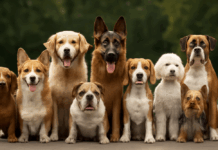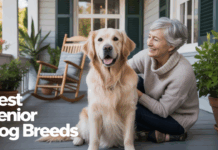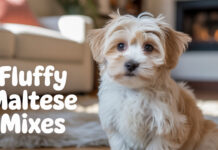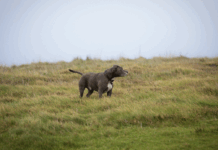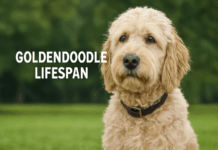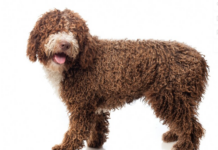Last Updated on April 25, 2023 by Dogs Vets
13 Top Dog Breeds That Likes to Play:
Breed Characteristics, Height, Weight, Coat and Color, Health and Life Expectancy
Dogs are known for their loyalty, companionship, and playfulness. Among the hundreds of breeds available, some stand out as being exceptionally playful and fun-loving.
In this article, we will discuss 13 top dog breeds that likes to play.
We will explore their characteristics, height, weight, coat and color, health, and life expectancy.
Let’s dive in!
1. Labrador Retriever
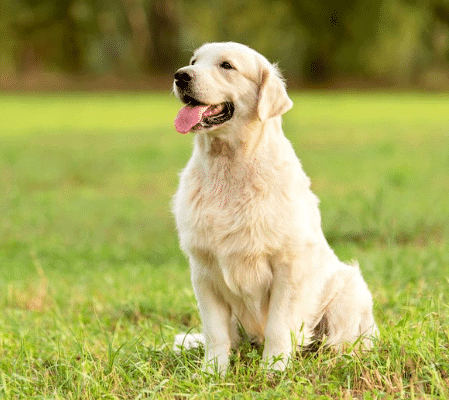
Breed Characteristics
Labrador Retrievers are known for their friendly and outgoing nature. They are highly intelligent, making them excellent service and therapy dogs. These playful pups love to interact with their human family and are great with children.
Height and Weight
Labrador Retrievers typically stand between 22 to 25 inches tall and weigh between 55 to 80 pounds.
Coat and Color
Labradors have a short, dense, and water-resistant coat that comes in three colors: black, yellow, and chocolate.
Health and Life Expectancy
Labradors have a life expectancy of 10 to 12 years. Common health issues include hip and elbow dysplasia, eye disorders, and obesity.
2. Golden Retriever
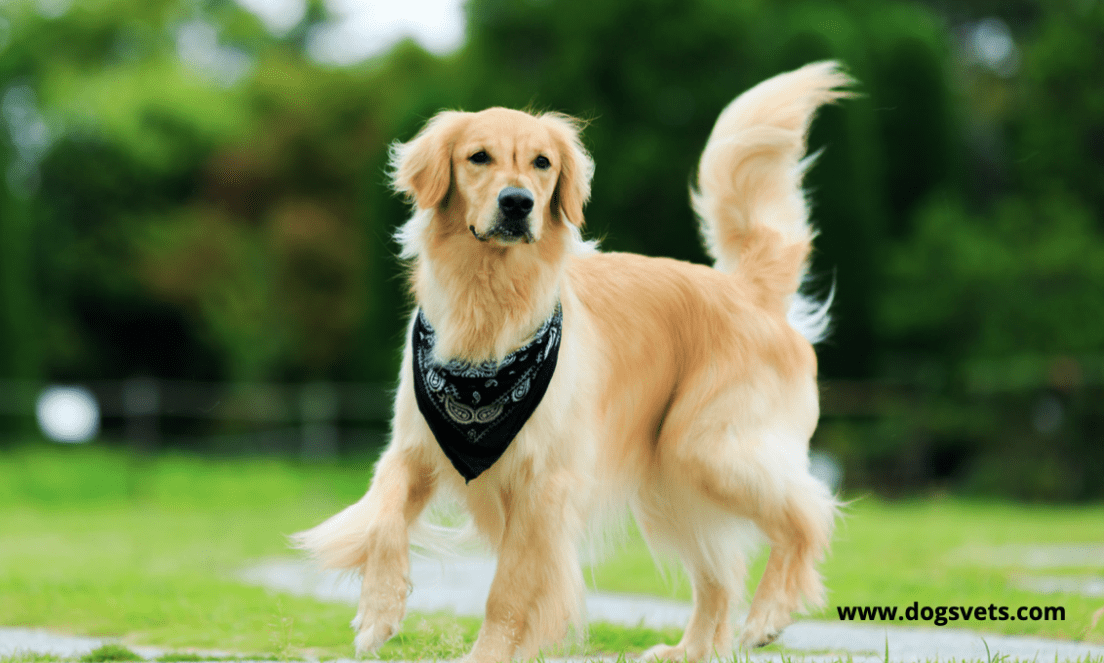
Breed Characteristics
Golden Retrievers are gentle, intelligent, and eager to please. They are natural athletes and enjoy participating in dog sports such as agility and obedience.
Height and Weight
Goldens typically stand between 21 to 24 inches tall and weigh between 55 to 75 pounds.
Coat and Color
Their beautiful, thick double coat ranges from light to dark gold in color.
Health and Life Expectancy
Golden Retrievers have a life expectancy of 10 to 12 years. Common health issues include hip dysplasia, various types of cancer, and heart disease.
3. Border Collie
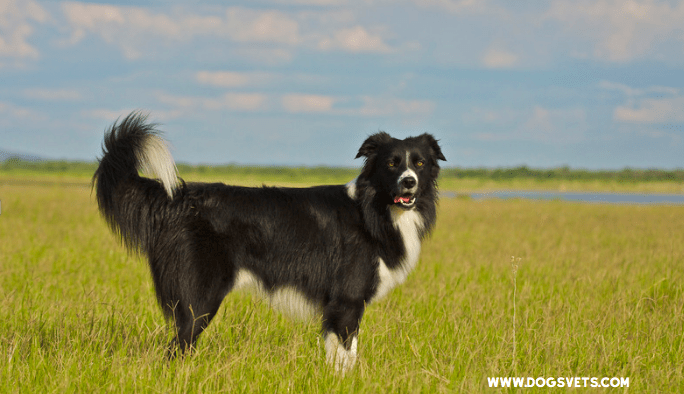
Breed Characteristics
Border Collies are intelligent, energetic, and hard-working. They excel in herding and dog sports, making them a great choice for active families.
Height and Weight
Border Collies usually stand between 18 to 22 inches tall and weigh between 30 to 55 pounds.
Coat and Color
Their coat can be either rough or smooth, and comes in a variety of colors, including black and white, red and white, and blue merle.
Health and Life Expectancy
Border Collies have a life expectancy of 12 to 15 years. Common health issues include hip dysplasia, eye disorders, and epilepsy.
4. Australian Shepherd
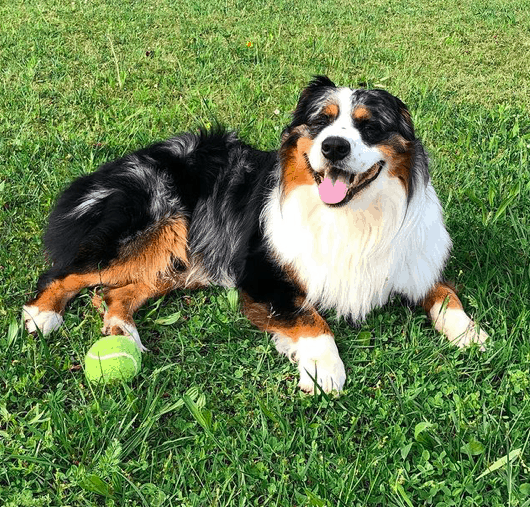
Breed Characteristics
Australian Shepherds are intelligent, versatile, and energetic. They excel in various dog sports and make excellent working dogs.
Height and Weight
Aussies typically stand between 18 to 23 inches tall and weigh between 40 to 65 pounds.
Coat and Color
Their medium-length, weather-resistant coat comes in various colors, including blue merle, red merle, black, and red, often with white and/or copper trim.
Health and Life Expectancy
Australian Shepherds have a life expectancy of 12 to 15 years. Common health issues include hip dysplasia, eye disorders, and epilepsy.
5. Beagle
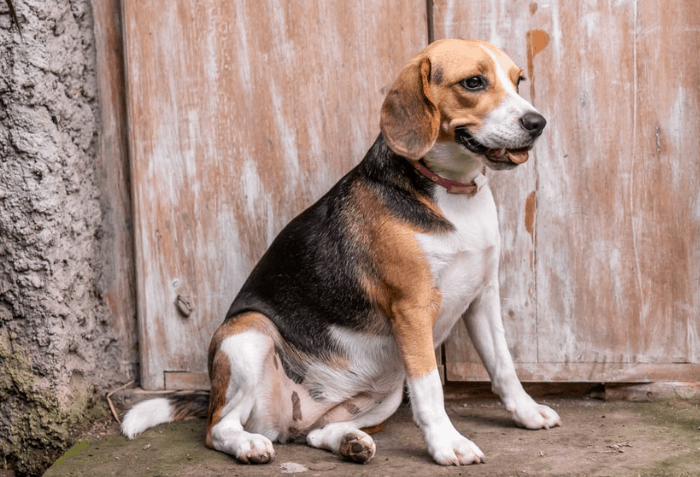
Breed Characteristics
Beagles are friendly, curious, and energetic. They make excellent family pets and love to play with children.
Height and Weight
Beagles usually stand between 13 to 15 inches tall and weigh between 18 to 30 pounds.
Coat and Color
Their short, dense coat comes in various hound colors, including tricolor, red and white, and lemon.
Health and Life Expectancy
Beagles have a life expectancy of 10 to 15 years. Common health issues include ear infections, obesity, and epilepsy.
6. Boxer
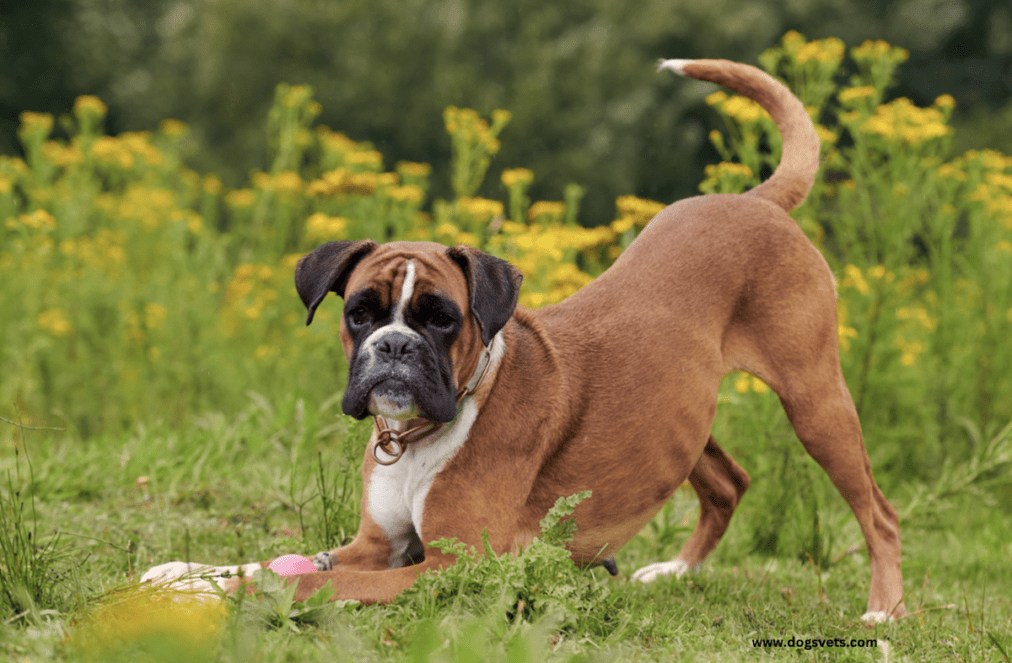
Breed Characteristics
Boxers are energetic, intelligent, and affectionate. They make great family pets and are excellent with children.
Height and Weight
Boxers typically stand between 21 to 25 inches tall and weigh between 50 to 80 pounds.
Coat and Color
Their short, smooth coat comes in various colors, including fawn, brindle, and white.
Health and Life Expectancy
Boxers have a life expectancy of 10 to 12 years. Common health issues include heart problems, cancer, and hip dysplasia.
7. Poodle
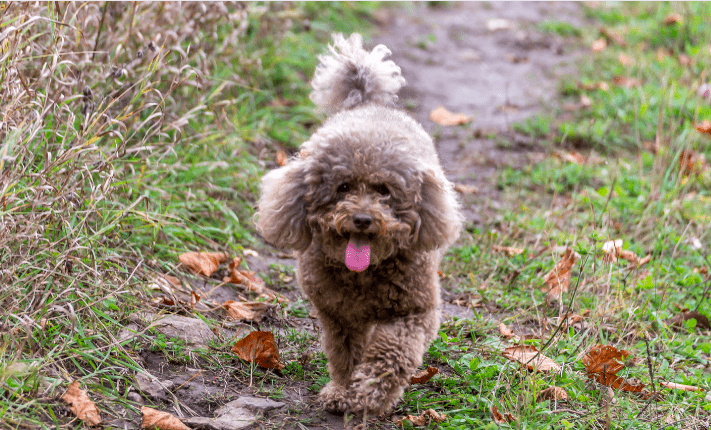
Breed Characteristics
Poodles are highly intelligent, versatile, and elegant. They excel in various dog sports and are hypoallergenic, making them a popular choice for allergy sufferers.
Height and Weight
Poodles come in three sizes: Standard (45 to 70 pounds), Miniature (15 to 17 pounds), and Toy (5 to 10 pounds).
Coat and Color
Their curly, dense coat comes in various solid colors, including black, white, apricot, and gray.
Health and Life Expectancy
Poodles have a life expectancy of 10 to 18 years, depending on their size. Common health issues include hip dysplasia, eye disorders, and epilepsy.
8. Dalmatian
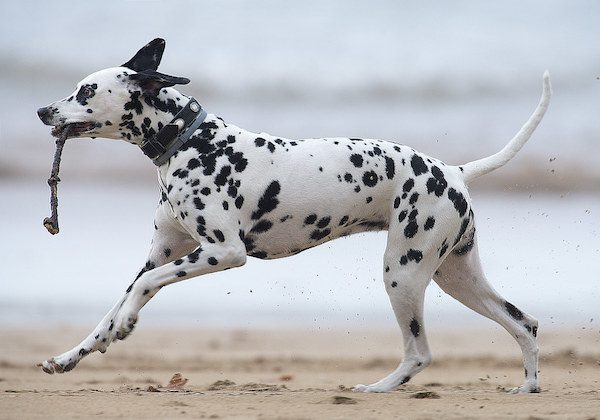
Breed Characteristics
Dalmatians are energetic, intelligent, and friendly. They have a unique spotted coat and make great companions for active families.
Height and Weight
Dalmatians typically stand between 19 to 24 inches tall and weigh between 45 to 70 pounds.
Coat and Color
Their short, dense coat is white with black or liver-colored spots.
Health and Life Expectancy
Dalmatians have a life expectancy of 11 to 13 years. Common health issues include deafness, urinary stones, and skin allergies.
9. Pembroke Welsh Corgi
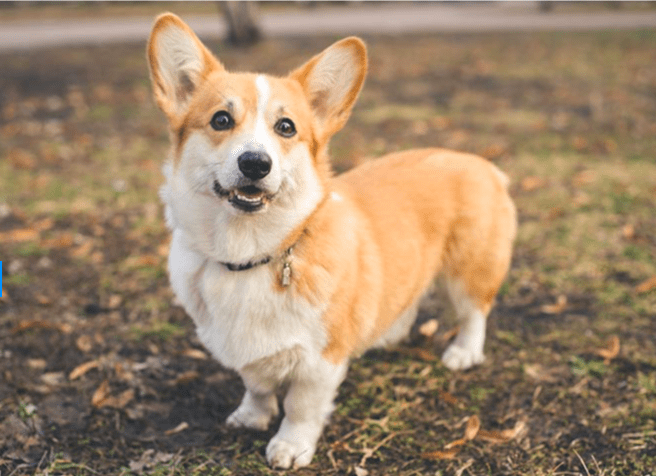
Breed Characteristics
Pembroke Welsh Corgis are intelligent, affectionate, and playful. They are excellent herding dogs and make great family pets.
Height and Weight
Corgis usually stand between 10 to 12 inches tall and weigh between 24 to 30 pounds.
Coat and Color
Their medium-length, water-resistant coat comes in various colors, including red, sable, fawn, and black and tan.
Health and Life Expectancy
Pembroke Welsh Corgis have a life expectancy of 12 to 14 years. Common health issues include hip dysplasia, eye disorders, and obesity.
10. English Springer Spaniel
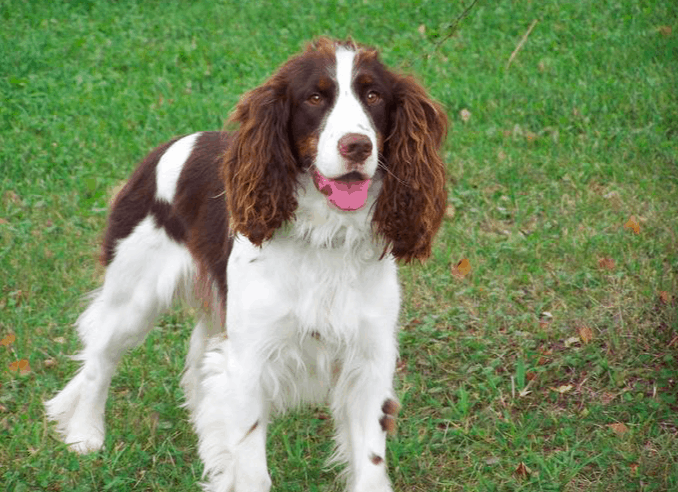
Breed Characteristics
English Springer Spaniels are friendly, energetic, and intelligent. They make excellent hunting companions and family pets.
Height and Weight
Springer Spaniels typically stand between 19 to 20 inches tall and weigh between 40 to 50 pounds.
Coat and Color
Their medium-length, silky coat comes in various colors, including liver and white, black and white, and tri-color.
Health and Life Expectancy
English Springer Spaniels have a life expectancy of 12 to 14 years. Common health issues include hip dysplasia, eye disorders, and skin allergies.
11. Siberian Husky
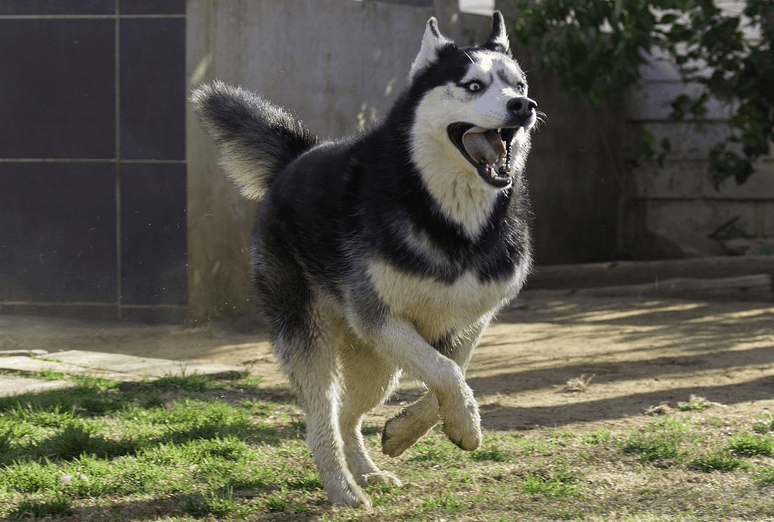
Breed Characteristics
Siberian Huskies are intelligent, energetic, and friendly. They are natural athletes and excel in activities such as sled racing and skijoring.
Height and Weight
Huskies usually stand between 20 to 24 inches tall and weigh between 35 to 60 pounds.
Coat and Color
Their dense, double coat comes in various colors, including black and white, gray and white, red and white, and all white.
Health and Life Expectancy
Siberian Huskies have a life expectancy of 12 to 14 years. Common health issues include hip dysplasia, eye disorders, and skin allergies.
12. Jack Russell Terrier
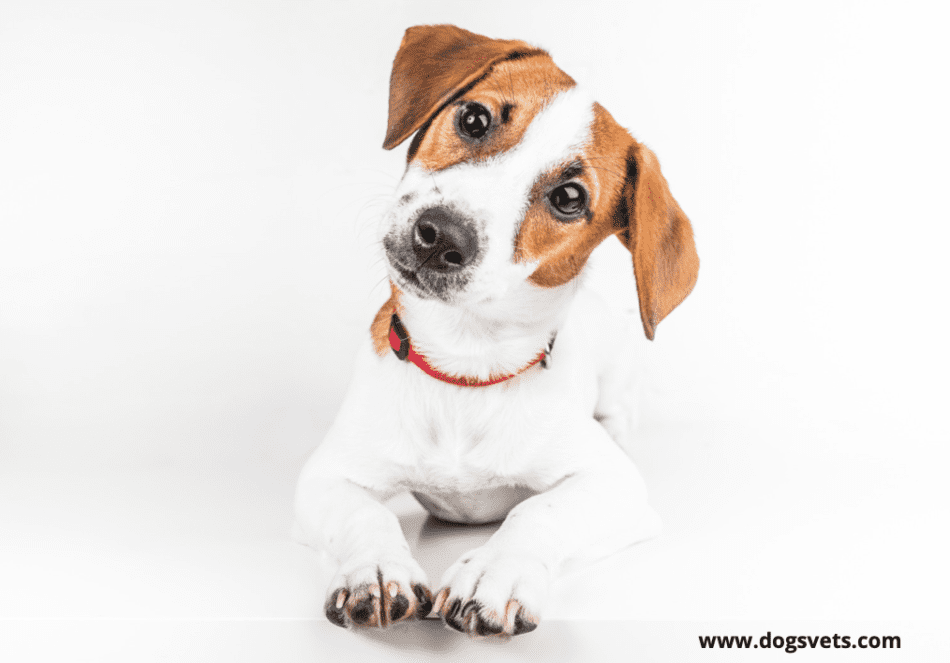
Breed Characteristics
Jack Russell Terriers are energetic, intelligent, and bold. They are excellent hunters and make great companions for active families.
Height and Weight
Jack Russells typically stand between 10 to 15 inches tall and weigh between 13 to 17 pounds.
Coat and Color
Their coat can be smooth, broken, or rough and comes in various colors, including white, white and tan, and white and black.
Health and Life Expectancy
Jack Russell Terriers have a life expectancy of 13 to 16 years. Common health issues include eye disorders, deafness, and patellar luxation.
13. Boston Terrier

Breed Characteristics
Boston Terriers are intelligent, friendly, and lively. They are known as the “American Gentleman” due to their tuxedo-like coat and make excellent family pets.
Height and Weight
Boston Terriers usually stand between 15 to 17 inches tall and weigh between 12 to 25 pounds.
Coat and Color
Their short, smooth coat is black and white, brindle and white, or seal and white.
Health and Life Expectancy
Boston Terriers have a life expectancy of 11 to 13 years. Common health issues include eye disorders, patellar luxation, and respiratory problems.
Conclusion
Each of these 13 dog breeds offers a unique combination of characteristics, making them excellent playmates for families and individuals alike.
When selecting a dog breed, it’s essential to consider your lifestyle, living situation, and personal preferences to ensure that you and your new furry friend are a perfect match.
FAQs
What factors should I consider when choosing a playful dog breed?
When choosing a playful dog breed, consider your lifestyle, activity level, living space, and personal preferences. Some breeds require more exercise and mental stimulation than others.
Are some dog breeds more suitable for families with children?
Yes, some breeds, such as Labrador Retrievers, Golden Retrievers, and Beagles, are known for their gentle and friendly nature, making them great choices for families with children.
Do all playful dog breeds require a lot of exercise?
While all playful dog breeds enjoy physical activity, some require more exercise than others. Breeds like Border Collies and Australian Shepherds need regular, intense exercise to stay happy and healthy.
Are there small dog breeds that are also playful?
Yes, small dog breeds such as Pembroke Welsh Corgis, Jack Russell Terriers, and Boston Terriers are known for their playful and energetic nature.
Do some playful dog breeds have specific grooming needs?
Grooming needs vary among breeds. For example, Poodles require regular grooming to maintain their curly coat, while Beagles have minimal grooming needs due to their short coat.
Are some playful dog breeds hypoallergenic?
Yes, some playful breeds, like Poodles, are considered hypoallergenic due to their non-shedding coats, making them suitable for people with allergies.
Can I adopt a mixed-breed dog that is also playful?
Absolutely! Mixed-breed dogs can inherit the playful traits of their parent breeds. Many mixed-breed dogs are waiting for their forever homes in shelters and rescue organizations.



